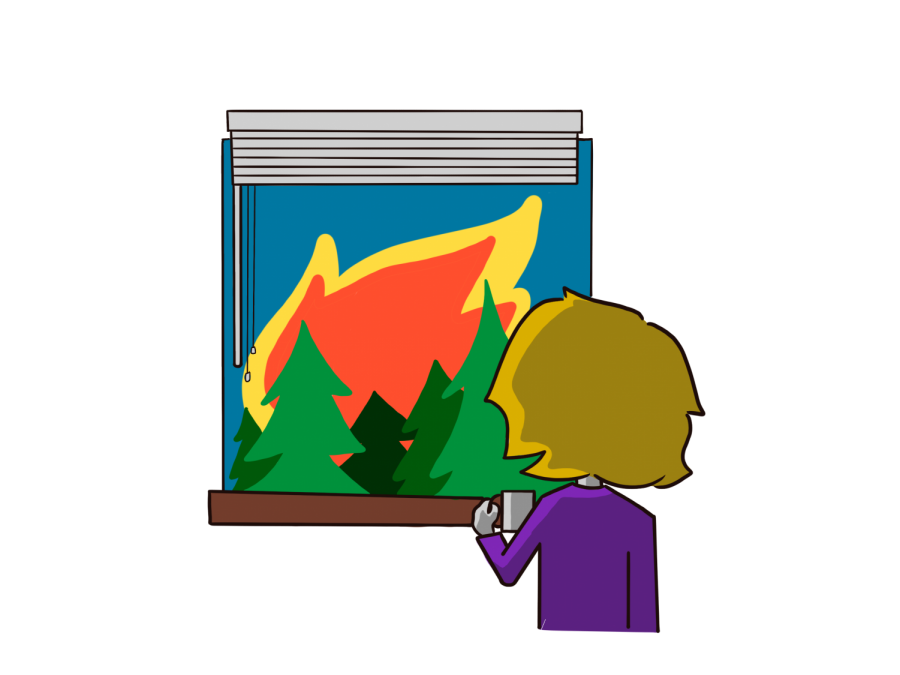West coast fires impact students
October 7, 2020
It is months into 2020, and far more than the pandemic is worrying the students of the westernmost states of the U.S. Having started in the summer, wildfires continue to rage in every state of the west coast, burning over 3.7 million acres of land, according to the Center for Disease Philanthropy. Tens of thousands of people evacuated, ash fell from the sky and air quality index numbers briefly exceeded the scale’s maximum value of 500 in Oregon.
Don Schmidt, a WSU senior marketing major based out of Spokane, said for a household of asthmatics the smoke was bad, but it became much more difficult when his air conditioning failed during the worst of it. He said his only options were to “let the smoke in or cook in his own home.”
“It was something out of a horror movie. I thought it couldn’t get any worse,” Schmidt said.
Unfortunately, his family’s second home in southern California burned to the ground. They were informed by a relative in the area.
James Lee, a CWU sophomore business management major from Long Beach, California said, “[California] is always on fire. It’s not like this seemed like anything new.”
As heavy smoke and ash made its way to Long Beach, Lee was working on the frontlines of a grocery co-op. When the air quality reached a level of upwards of 90 on the air quality index, he reached a level of panic he’d not been familiar with and suffered his first panic attack.
As things have gone on, his relationship with his parents has suffered a blow.
Lee’s parents told him he had a “ridiculous need to blame [himself] for how things are going instead of the people who caused all this.”
Skylar Harry, a Columbia Basin College computer science student who’d been considering CWU from Richland, Washington has family members across the coast, several of whom have breathing issues. Harry said the fires were a weight on everyone’s minds.
When asked about how it had affected his daily routines, Harry said all of his possible plans were canceled, including everything from shopping to veterinarian visits. His brother, whom he drives to work, had to call out of work for an entire week. He was grateful the effects weren’t worse.
“Fortunately, routines are the only casualties my family has suffered,” Harry said.
Harry said these fires and the resultant smoke could have been avoided by listening to science and being careful. As an “avid science enthusiast”, he said were it not for global warming, the fires wouldn’t have been the issue they have become.
“It’s a scary time, sure, but if we look after each other and don’t let how scared we are divide us, we’ll make it. We always do,” Harry said.



